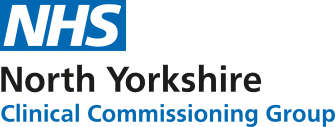Health professionals eager to address vaccine fears among some patients to boost take-up of COVID jabs
Doctors and other healthcare professionals in North Yorkshire and York say they are working hard to address the fears and phobias that are holding some people back from getting vaccinated against coronavirus.
They say many of those who have not yet stepped forward have genuine anxieties, such as a phobia of needles, a fear of fainting, or a mistrust of vaccines in general.
Clinicians say there is also evidence that some pregnant women have been reluctant to be vaccinated, even though they are considered to be among those at higher risk of serious illness caused by coronavirus.
Dr Cath Dixon, Executive Chair and Clinical Lead of the Yorkshire Health Network a Federation of the 17 GP Practices in the Harrogate district, said: “Getting a COVID-19 vaccine is one of the most important things a pregnant woman can do this year to keep herself and her baby as safe from this virus as possible.
“There is now extensive evidence to show that the vaccines are safe and that the risks posed by COVID-19 to mum and baby are far greater. If any mums-to-be are having doubts about vaccination, I would urge them to talk to their midwife or doctor.”
David Reaich, deputy chief medical officer at South Tees Hospitals NHS Foundation Trust said: “Sadly we are continuing to see younger patients who are unvaccinated succumb to this disease, become incredibly poorly and require admission to our critical care.
“The vaccine saves lives and by being unvaccinated you are rolling the dice on your own health and those around you. As we are sadly seeing, age alone is not a defence against this virus. Please get vaccinated.”
Sally Brown, Clinical Managing Partner at Haxby Group Scarborough (formerly Central Healthcare), said: “We understand the reasons why some people are hesitant about getting their COVID vaccination, but we want those people who are still wrestling with their decision to come to a clinic and talk to us about any concerns they may have.
“We’ve had some real successes with recent first vaccines where people have spoken to us, gone away and thought about it and then returned to be vaccinated.”
At many of the vaccination clinics in North Yorkshire and York there are separate, partitioned areas for those with a phobia of needles, together with comfortable chairs and calming words to put people at ease before they are jabbed. Marshals have been trained to spot people who appear anxious and have been offering additional assistance.
For patients with a fear of fainting – or those who have been prone to fainting in the past – many of the larger venues are equipped with a couch for patients to lie on after they’ve had their jab.
Those people who do not believe they should be vaccinated are also being encouraged to come to a clinic and talk to a clinician to discuss their concerns.
NHS North Yorkshire Clinical Commissioning Group (CCG) Accountable Officer, Amanda Bloor, says COVID vaccination is “an evergreen offer” and is urging those with misgivings to come forward and talk to a health professional.
“If you’re one of those people who were initially hesitant about getting vaccinated against COVID-19 but are having second thoughts, it’s not too late to come forward,” she said. “First and second doses are available to everyone aged 12 and over and I would encourage those who have not yet received a vaccination to take up the offer to protect themselves, their loved ones and their communities.
“There are lots of walk-in clinics available in North Yorkshire and York, together with bookable appointments available through the NHS National Booking Service.”
According to the latest Government data, 11.1 per cent of people in North Yorkshire eligible for a COVID vaccine have not yet come forward for a first dose, with 16.4 per cent eligible for a second dose.
In the City of York area, 16.7 per cent of the eligible population have not had a first vaccine dose, with 22.8 per cent yet to have two jabs.
In total, more than 1.8 million vaccine doses have now been administered in North Yorkshire and York by NHS and pharmacy teams.
